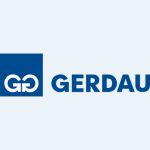Gerdau S.A. is a Brazilian multinational in the steel sector, founded by João Gerdau in 1901 in Porto Alegre, Rio Grande do Sul. Its creation was motivated by the need to supply metal products in Brazil during an early stage of industrialization.
Initially focused on the production of nails, the company expanded its operations over the decades, diversifying within the steel industry and consolidating itself as one of the largest steel producers in the world.
Gerdau’s main products include long and special steels used in sectors such as construction, automotive, industrial manufacturing, and agriculture. Its portfolio also includes recycled steel solutions, bars, profiles, wire products, and other metallic materials serving a wide range of industrial applications.
The company operates on a global scale, with a presence in more than 10 countries, including Brazil, the United States, Canada, Mexico, and other markets in Latin America, Europe, and Asia.
Its international footprint includes the export of steel products and the operation of industrial and commercial units across multiple continents.
Gerdau maintains subsidiaries and projects in strategic markets and adopts sustainability-driven practices, such as the use of recycled scrap metal in its production processes.
With more than 30,000 employees, the company is one of the largest players in the global steel industry. Its operations include an extensive customer base and commercial partnerships, as well as hundreds of production and distribution units in different countries.
Gerdau’s operational structure consists of steel mills, distribution centers, and recycling units, following an integrated production chain model that spans from scrap metal recycling to manufacturing finished products.
Gerdau’s shares are traded on Nasdaq in the United States under the ticker GGB.
History and when Gerdau S.A. was created
Gerdau S.A. was founded in 1901 in Porto Alegre, Rio Grande do Sul, by João Gerdau, a German-born entrepreneur who settled in Brazil. The company began as a nail factory called Pontas de Paris, serving local demand for metal products during a period of growing industrialization in the country.
The company positioned itself as a reliable supplier of nails and other metal items, gradually expanding its production capacity and customer base. Gerdau’s expansion began in the 1940s with the acquisition of steel mills and the diversification of its product offerings.
Starting in the 1970s, the company began its internationalization process, acquiring industrial facilities outside Brazil and expanding its presence in strategic markets such as the United States and Latin America.
A major milestone in Gerdau’s history was its initial public offering (IPO) on the São Paulo Stock Exchange in 1946, followed by the listing of its American Depositary Receipts (ADRs) on the New York Stock Exchange (NYSE).
Other significant events include acquisitions of steel companies in North America and the implementation of sustainability practices, particularly the increased use of recycled scrap metal.
Between 2020 and 2024, Gerdau stood out for its resilience during a challenging global environment marked by fluctuations in steel prices and shifts in global demand.
During this period, the company invested in technological innovation, expanded operations in strategic markets, and reinforced its focus on sustainability within the global steel industry.
Additional Information
The Company Gerdau SA ADR (United States), is listed on Nasdaq with a market value of $ 8.00 Billions, having an equity of $ 10.21 Billions.
The Company is listedthe in the sector of Others and categorized in industry of Others.
In the last 12 months the Company had a revenue of $ 12.29 Billions, which generated a profit in the amount of $ 538.77 Millions.
As for its main indicators, the Company has a P/E ratio of 14.85, a P/BV ratio of 0.78 and in the last 12 months the dividend yield of GGB was at 2.74%.
The Company is traded internationally through the ticker GGB.







 Tesla
Tesla
































